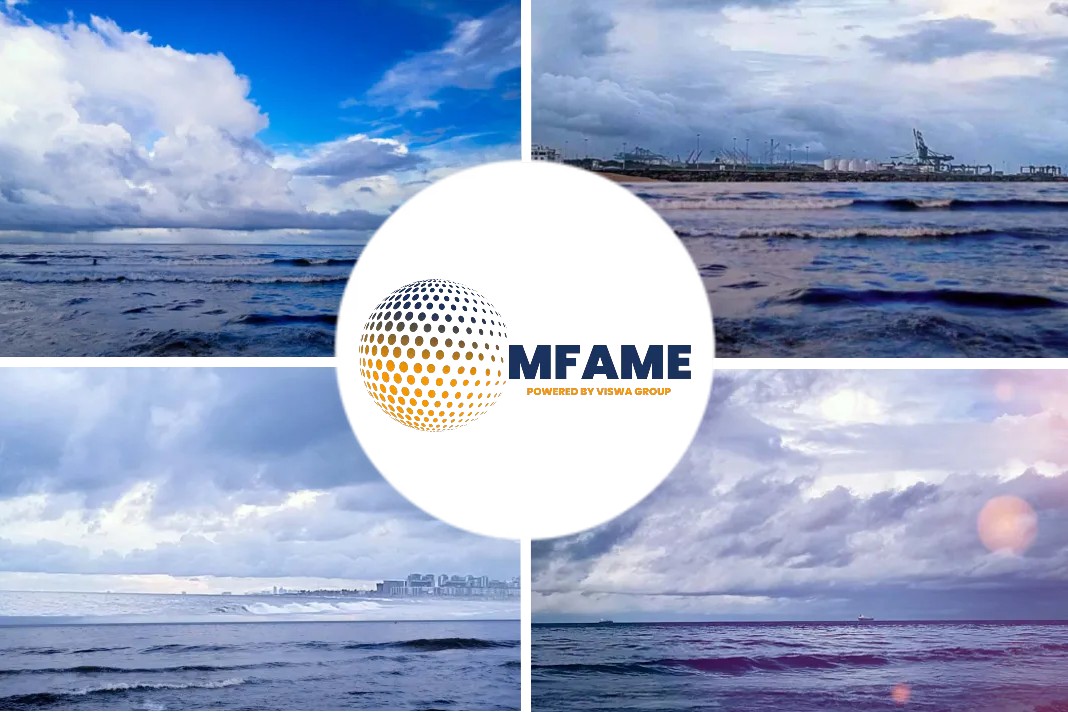A project launched to probe conversion of existing ships from fossil-based fuels to decarbonized energy sources, says an article on Mitsubishi.
Assessment for zero-carbon fuels
Mitsubishi Heavy Industries, Ltd. (MHI) is to undertake technical, financial, and environmental assessments for converting existing ships to vessels that run on zero-carbon fuels. The evaluations will be performed mainly by two Group companies – Mitsubishi Shipbuilding Co., Ltd. and Mitsubishi Heavy Industries Marine Machinery & Equipment Co., Ltd. – under a project led by The Mærsk Mc-Kinney Møller Center for Zero Carbon Shipping(Note), a research institute created to promote decarbonization of the maritime shipping industry, in which MHI serves as a founding partner.
MHI Group, as part of its energy transition growth strategy, is collaborating with the Center’s other strategic partners toward achieving a global zero-carbon fleet. By clarifying a roadmap for converting existing vessels that run on fossil fuels to carbon-neutral ships and identifying the challenges faced, the project aims to reduce ship-related investment risks.
It includes:-
Under this project, technical assessments of safety aspects will be conducted relating to future solutions, including modification of existing container carriers, tankers, and other existing ships to vessels that operate on ammonia, methanol, and other decarbonized fuels. In addition, financial assessments will be undertaken pertaining to fuel conversion costs, technology investments, fuel costs and related maritime shipping costs, etc.; and an environmental assessment will be conducted based on estimated cost benefits from reducing greenhouse gas (GHG) emissions over a ship’s lifetime.
Besides MHI, other strategic partners in the project include A.P. Møller – Mærsk A/S, one of the world’s leading international shipping companies; the American Bureau of Shipping (ABS); MAN Energy Solutions, a longstanding producer of large-scale diesel engines; Nippon Yusen Kabushiki Kaisha (NYK Line); Seaspan Corporation, the world’s leading independent owner and operator of container ships; and Total S.A., a group of companies dealing in oil, gas and other energy resources. The new project, which follows an earlier project to develop guidelines for the safe usage of ammonia as a shipping fuel, will pave various pathways toward decarbonizing the maritime shipping industry.
Focus on achieving decarbonization
Currently, the marine shipping industry accounts for roughly 3% of the world’s carbon emissions, and as other industries take steps to decarbonize, this percentage will likely increase over the next several decades. Going forward, MHI Group will apply its accumulated technologies and expertise in ships and ship engines and, working with its project partners to resolve the identified challenges, will focus on achieving decarbonization of marine logistics, to help mitigate the environmental impact on a global scale.
Did you subscribe to our daily newsletter?
It’s Free! Click here to Subscribe!
Source: Mitsubishi
















